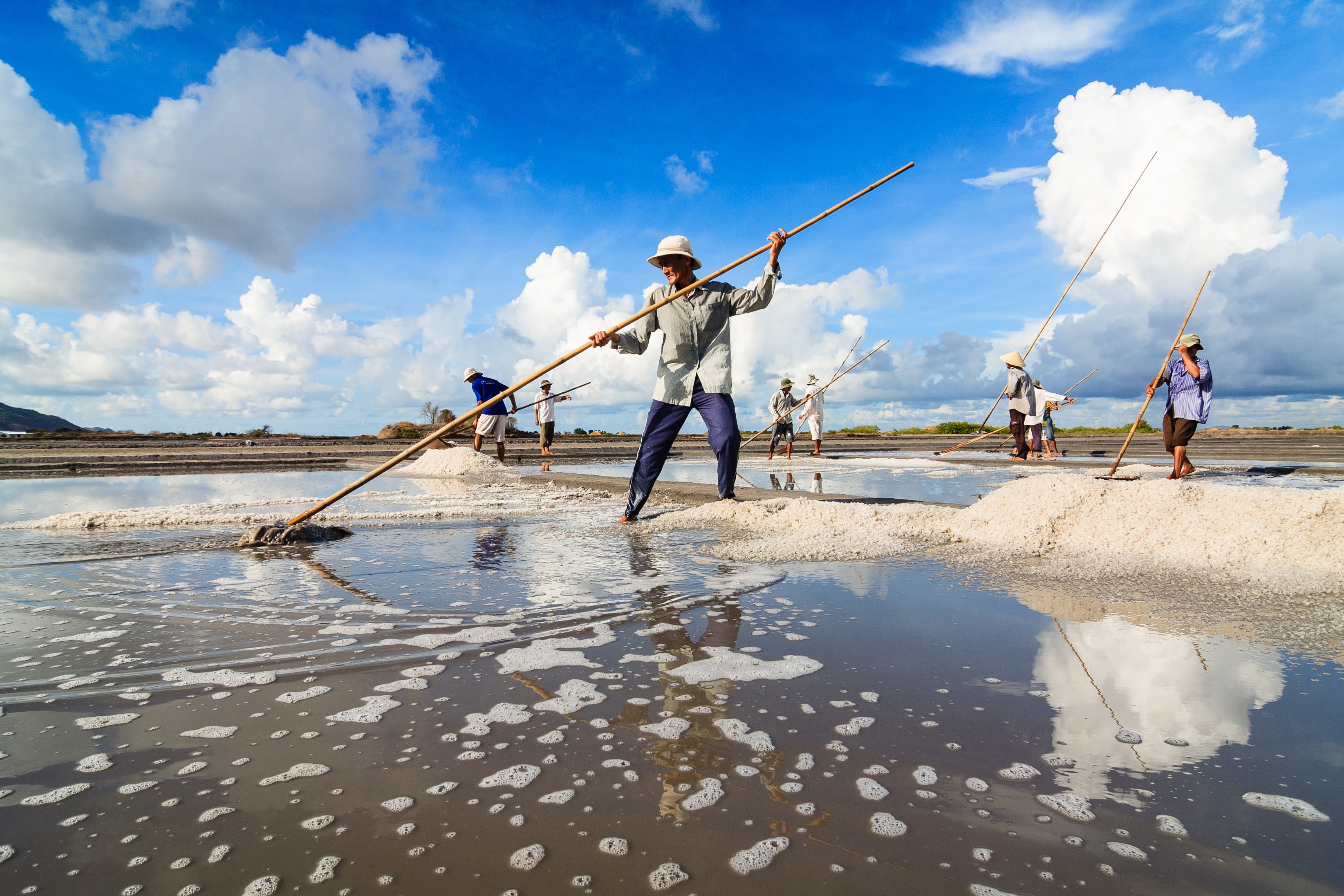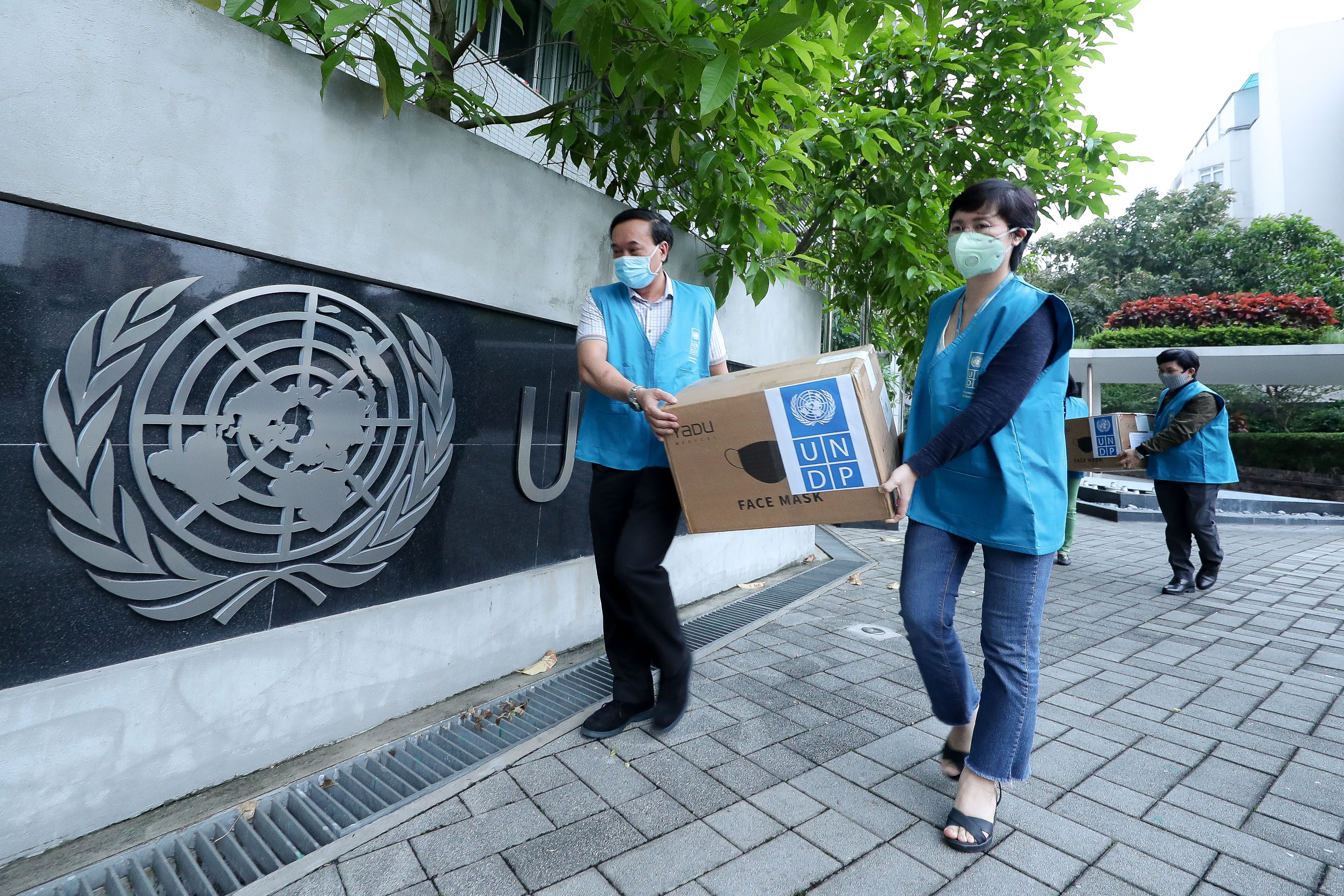By Han-Deog Cho, KOICA Country Director in Viet Nam, and Caitlin Wiesen, UNDP Resident Representative in Viet Nam
A bomb left from the war, weighing more than 200kg, was discovered in August 2021 in central Quảng Bình Province. — VNA/VNS Photo
As published in Viet Nam News on 4 April, 2022
In the bustling streets of the modern cities of Viet Nam, it can seem like the war is so distant, it does not even register as a memory.
Now that the COVID-19 restrictions are being lifted, the coffee shops ring again with laughter, the streets buzz with cars and motorbikes. It is another country from 50 years ago.
But if you travel a few hundred kilometers down the road, to many central provinces, time has not moved as quickly.
The war is long gone but it continues to take a toll and the scars can be seen on some of the narrow streets of the villages here. Landmines and unexploded ordnance continue to impact the lives and livelihoods of the community, a devastating reality for people living in rural Viet Nam. Moreover, it is holding up further development in large rural areas in provinces.
The Government of Viet Nam estimates that 18 per cent of the country’s land area are still contaminated with explosive remnants of war. Accidents are still a reality in rural communities despite decades of clearing landmines and unexploded ordnance. The Government of Viet Nam is committed to achieving the Sustainable Development Goals (SDGs), ensuring that no one is left behind and recently Prime Minister Phạm Minh Chính announced the target of no further accidents due to mines and unexploded ordnance by 2025.
This means bringing an end to losing lives and limbs to this deadly legacy of war and to release land previously contaminated by explosive ordnance is safely for development and productive use of local communities.
It is our shared ambition that we continue to focus on the last mile and turn our energies to eliminating the impact of unexploded ordnance and landmines, and putting a complete stop to civilian casualties, by 2030.
In order to address explosive ordnance contamination in the country, a national action plan, known as Programme 504, has been underway since 2010. At the mid-term review event of the Program on February 17, 2022, Prime Minister Phạm Minh Chính praised the success of the initiative and presented a six- point plan for the final phase of the programme, for the period 2021-2025.
KOICA and UNDP are committed to support the Government in realising this goal. The tripartite partnership has successfully completed phase 1 of the South Korea-Viet Nam Mine Action Program (KVMAP) with key results including: surveyed and cleared 17,000ha of land, paving the way for building sustainable livelihoods for people in Quảng Bình and Bình Định provinces; helped improve resilience of 450,000 people through risk education; and provided support for 1,000 UXO victims.
Our special partnership has shown three lessons learnt that could help Viet Nam further implement Programme 504. Firstly, information management is key to effective survey and clearance; (ii) Digitalisation of registration is crucial for timely meeting the needs of victims; and (iii) It is the youth who were born after the wars but can have many creative ways to convey mine risk messages, to protect themselves, their families, and other children.
It is also important to highlight that Viet Nam’s mine action programme is undergoing significant policy development, following the Decree No 18 and Circular No 195. Indeed, the adoption of these has provided a clear mandate, roles and responsibilities and established legal basis for revision of the national regulations and standards.
Building on the success of phase 1, KOICA through UNDP will support three central provinces to protect local people from the multiple risk of UXO, climate, health, thus ensuring their safe livelihood.
In March 2022, KOICA and UNDP signed a further extension of this initiative providing US$25 million over a five-year period to 2026 to continue supporting the Government of Viet Nam in its efforts to strive towards zero casualties from explosive ordnance and to promote socio-economic development in rural communities in Thừa Thiên-Huế, Quảng Ngãi, and Bình Định. KOICA and UNDP look forward to working with VNMAC and the three provinces in achieving these important and ambitious goals of the project: Survey and clearance of 15,000ha in three provinces; based on data of the victims registration system developed in the first phase, more specialised health services will be provided to the UXO victims in the second phase; education of risks caused not only by UXO but other climate disasters/issues will be provided comprehensively to the people in the targeted areas; in addition, 10,500 farmers in the target areas will be supported to apply smart-climate and resilient agriculture as resilience livelihood, 400 flood and storm resilient houses, and 50 commune health stations will be built or upgraded for the people in the second phase.
These results will help ensure the people and the communities in the three provinces become more protected and resilient while facing multiple risks of UXO, climate and health in their lives nowadays.
Today is the International Day for Mine Awareness and Assistance in Mine Action and the theme for 2022 is “Safe Ground, Safe Steps, Safe Home”. At the opening session celebrating this day in the United Nations Headquarters in New York on April 4, 2022, the Permanent Representative of Viet Nam to the United Nations will speak, followed by a video about mine action in Viet Nam, highlighting significant progress made towards our ambitious goal of zero casualties due to unexploded ordnance by 2025.
The year of 2022 also marks 30 years of diplomatic relations between Viet Nam and the Republic of Korea, through its development arm, and 45 years since the accession of Viet Nam to the United Nations. At this historic moment, we are pleased that the tripartite partnership of Government of Viet Nam, KOICA and UNDP is making significant contributions to build safer, greener, more prosperous, and resilient villages across the country.
Our goal is not just to clear land of explosive ordnance from the war but also to ensure that cleared land is integrated with efforts supporting rural development plans and thereby promoting peaceful and sustainable communities that are both safe for inhabitants and that thrive.

 Locations
Locations




















